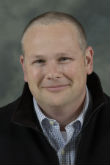The chairman of the state’s commission that sets coastal development policy is standing by his decision to fill vacancies on the commission’s Science Panel after its members update its controversial 2010 report on sea-level rise in North Carolina next year.
Sitting members of the Coastal Resources Commission’s Science Panel, which advises the commission on a wide range of issues, can remain on the panel as long as they wish following the 2015 release of the updated report, Frank Gorham, the commission’s chairman, said in a recent interview.
Supporter Spotlight
Gorham said he will not disband the panel once a final draft of the legislative-ordered update is released for public comment in March 2015. The update must be submitted to the N.C. General Assembly by February 2016.
 Frank Gorham |
“We will decide then how we will use the Science Panel,” Gorham said. “We have some decisions on inlet hazards, on what type of ocean erodible setbacks we will have. An option is I may fill one or two slots, but I may keep one or two openings project-specific. I don’t want to decide what I need until I decide what we’re going to study. I’m just going to take the heat and not fill them. I’m not changing my mind.”
As it stands, the panel, which can consist of up to 15 people, has 10 members, volunteer scientists and engineers who are appointed by the Coastal Resource Commission chair. Gorham said he has been widely criticized for not firing the original panel, which does not have term limits, and reappointing a new one.
The commission has two vacancies on its 13-member board. Those seats are filled by gubernatorial appointment. The state Division of Coastal Management is waiting for Gov. Pat McCrory to fill the vacant slots, said N.C. Department of Environment and Natural Resources spokeswoman Michele Walker.
In June Gorham appointed Greg “Rudi” Rudolph, a geologist who heads Carteret County’s Shore Protection Office. Gorham’s selection was approved by the commission’s Executive Committee and avoided fueling the highly politically charged sea-level rise debate in North Carolina.
Supporter Spotlight
Backlash from some coastal developers and local governments following the release of the panel’s forecast of up to a 39-inch ocean rise by 2100 drew international attention when state lawmakers initially toyed with the idea of banning sea-level rise projections entirely.
Legislators instead passed a law in 2012 forbidding state and local governments from using the forecast until the new report is released. The new version will project 30 years instead of the original 100-year forecast. Updates to the 30-year forecast will be made every five years.
A new report is also why, at least in part, one of two Science Panel members resigned earlier this year.
Scientists Rob Young, a geologist who heads the Program for the Study of Developed Shorelines at Western Carolina University, and Antonio Rodriguez, a joint associate professor with the University of North Carolina’s Institute of Marine Sciences resigned this past summer.
 Rob Young |
 Antonio Rodriguez |
Young said that, while he respectsthe members of the panel, he is uncertain what an updated sea-level rise report will accomplish.
He volunteered on the panel for six years before announcing his August 28 resignation — a decision he says was based, in part, on long commutes and meeting family needs and commitments to the university.
“I have to admit that part of it is I just don’t see this particular sea-level rise report as being that significant,” Young said. “I’m willing to put in effort if there’s a high chance that the work we’re doing will result in something meaningful. Quite honestly I don’t think that’s the case for this particular sea-level rise report.
“I think that this particular report is a little bit of something that’s just going through the motions to fulfill this legislative mandate. I guess my concern is there’s just not a whole heck of a lot that the panel can add to the discussion. Quite frankly the Science Panel, for the past several years, we’ve been treading water a little bit, and the work we’ve been doing has not been directly incorporated into what is good coastal management. It makes it difficult for me to spend the time and money to come down that way.”
Rodriguez could not be reached for comment. In his July 1 email to fellow panel members and state Division of Coastal Management officials announcing his resignation he wrote, “The panel started out as a group of scientists interested in helping the state with coastal issues, kind of a grassroots effort. Now it is something much more formal. Some might argue that all of the recent changes are for the best, but for me personally, they are not.”
The panel must send a draft of the update to the University of Florida’s Robert Dean and James Houston of the U.S. Army Corps of Engineers for a technical peer review. Dean and Houston authored the research paper “Sea-Level Acceleration Based on U.S. Tide Gauges and Extensions of Previous Global-Gauge Analyses,” which analyzed monthly-averaged records for 57 U.S. tide gauges in the Permanent Service for Mean Sea Level database.
“It’s the Science Panel’s process and I think everyone’s going to be proud of it,” said Gorham. “I don’t think anybody can legitimately complain about the process I’ve chosen. If the Science Panel comes up with a 39-inch rise and the peer review group semi-supports it I’m going to respect the process. I’m not saying that’s going to happen, but I’m going to respect what those guys do. I respect science. Is it always right? No. What’s wrong with having different opinions? I’m very comfortable with the decision.”







